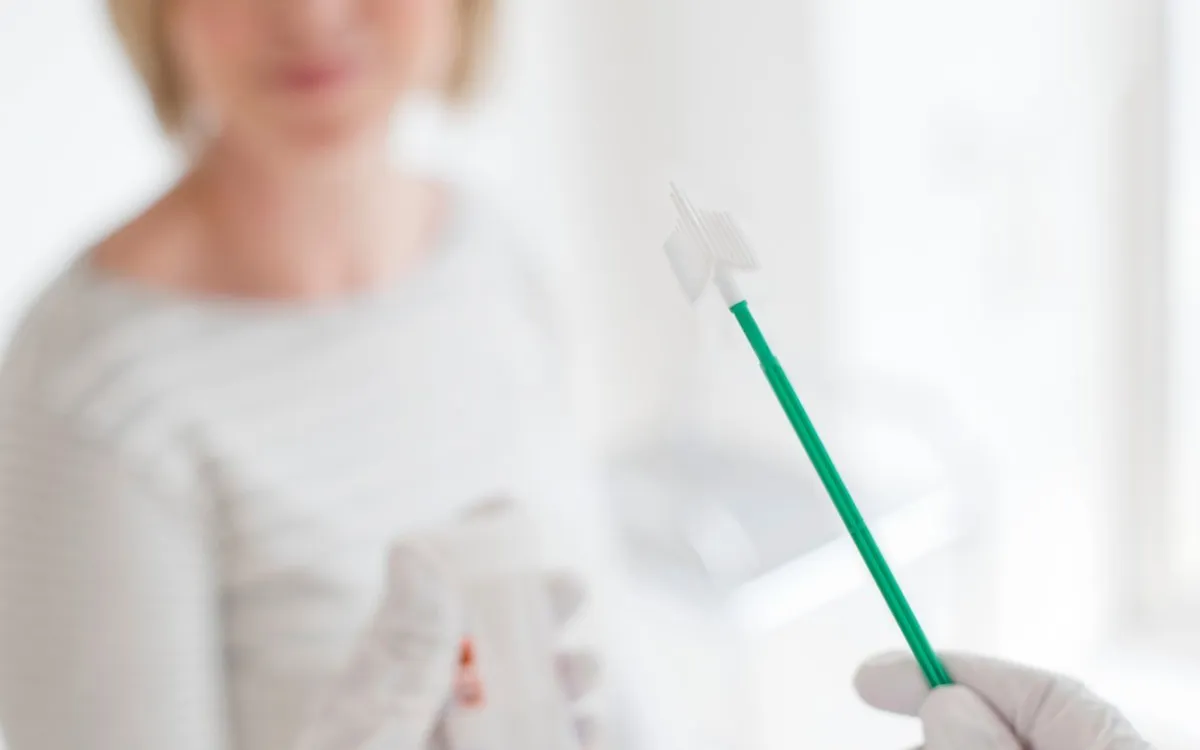
Pap smears have long been a crucial tool in the fight against cervical cancer, allowing for the early detection of cell abnormalities that can lead to this life-threatening disease. However, many individuals face systematic barriers or discomfort with the procedure, resulting in a significant number of people not receiving their timely screenings. In a groundbreaking development, the FDA has approved the first-ever at-home test for cervical cancer screenings, providing a less invasive and more accessible alternative to traditional pap smears.
The newly approved test, created by the San Francisco-based startup Teal Health, utilizes a device called the Teal Wand. Similar to traditional pap smears, this innovative test screens for the human papillomavirus (HPV), the primary cause of almost all cervical cancers. However, unlike conventional methods that require a speculum to collect cells from the cervix, the Teal Wand only needs a vaginal swab with a soft, spongelike tool. This less invasive approach aims to make cervical cancer screening more comfortable and accessible for women.
Kara Egan, CEO and co-founder of Teal Health, emphasized the importance of this approval, stating that it’s not merely about introducing an innovative product. “It’s about finally giving women an option that makes sense for their lives — something that can be done quickly and comfortably at home,” she explained. Egan further remarked, “Because when we make care easier to get, we help women stay healthy, for themselves and for the people who rely on them every day.”
In the United States, approximately 11,500 new cases of cervical cancer are diagnosed each year, leading to around 4,000 deaths. Despite the grim statistics, experts like Dr. Alexi Wright from the Dana-Farber Cancer Institute believe that cervical cancer could be eradicated in our lifetime. “We have the tools to do it. We just don’t have comprehensive HPV vaccination or cervical cancer screening, and often can’t reach the people who are at highest risk,” Dr. Wright stated in an interview.
According to the American Cancer Society, cervical cancer death rates in the U.S. have decreased by over half since the mid-1970s, although the decline has recently plateaued. A 2022 study highlighted that 23% of individuals were overdue for their screenings in 2019, compared to just 14% in 2005. Common barriers include lack of insurance and high costs, which disproportionately affect rural areas where cervical cancer rates are 25% higher and death rates are 42% higher due to limited resources and healthcare access.
For many, discomfort associated with traditional screening methods remains a significant barrier. A 2023 study by Michigan Medicine found that participants appreciated the option of at-home kits, stating they offer a “comfortable, convenient, and flexible choice without trauma.” At-home screenings have proven to be effective alternatives to traditional methods, with one study indicating that mailing kits to individuals overdue for cervical cancer screenings resulted in a 50% increase in participation compared to standard care.
Teal Health plans to make their at-home testing kits available starting next month, beginning in California. The company is actively coordinating with major insurance providers to ensure that costs are covered for those who need it. In addition to requesting tests through Teal Health’s platform, individuals can also coordinate necessary follow-up care, further enhancing the accessibility of cervical cancer screening.
With the introduction of the Teal Wand, the landscape of cervical cancer screening is poised for transformation, providing women with a more comfortable and accessible option to prioritize their health and wellbeing.